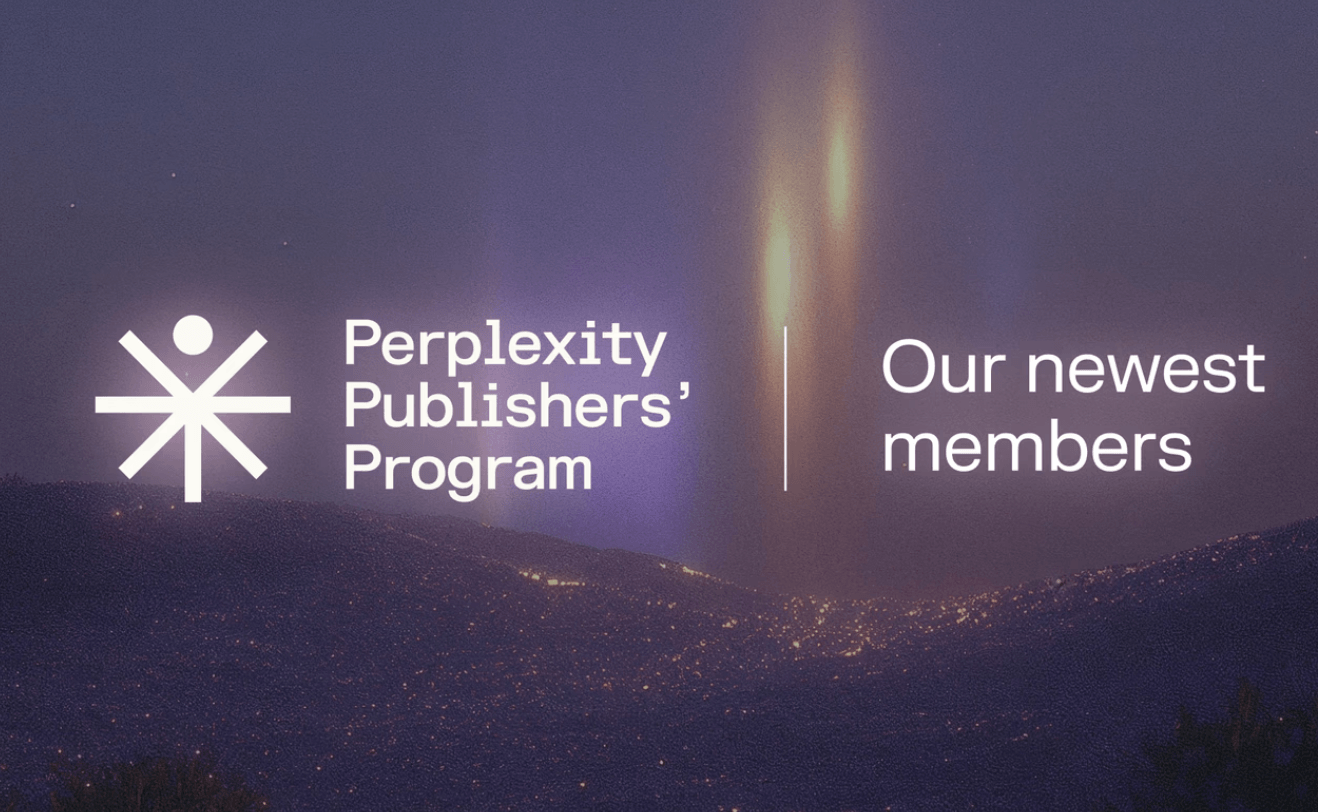Perplexity partners with global publishers as AI's use of news content faces legal pressure

Perplexity AI has added more than a dozen international media partners to its publisher program.
As part of these partnerships, Perplexity will share advertising revenue with publishers and give them access to its APIs, developer tools, and free Enterprise Pro licenses. The company hired Jessica Chan, who previously ran content partnerships at LinkedIn, to manage the growing program.
The expanded publisher program now includes ADWEEK, Blavity, DPReview, Gear Patrol, Lee Enterprises, Los Angeles Times, MediaLab, Mexico News Daily, Minkabu Infonoid, NewsPicks, Prisa Media, RTL Germany brands stern and ntv, and World History Encyclopedia, joining existing partners such as TIME, Fortune, and Der Spiegel.
Legal pressures drive media deals
These partnerships come as AI companies face legal questions about using journalistic content. AI search engines like Perplexity need agreements with publishers to avoid potential lawsuits over unauthorized content use, particularly when their AI systems paraphrase sources.
Journalism scholar Jeff Jarvis calls such payments hush money and "pure lobbying." The issue creates an uneven playing field: while major media companies may benefit from these deals in the short term, smaller publishers without agreements risk falling behind.
The power imbalance could worsen as platforms like Perplexity gain more influence. Even publishers with existing agreements might become overly dependent on these platforms—something the industry has already experienced with Google.
Media companies at a crossroads
AI answer engines create fundamental challenges for media companies. Long-term partnerships with AI platforms risk reducing publishers to mere content suppliers, with their work appearing only as scattered sentences in AI responses.
Publishers could instead develop their own digital platforms and business models to maintain editorial independence. However, many find AI partnerships more appealing in the short term, or they don't see these systems as a threat, or the money is just too good.
Perplexity's deals are different from OpenAI's arrangements, though, offering publishers the chance to grow their profits alongside Perplexity's advertising revenue. OpenAI's deals are reportedly more static or one-time payments.
Fact-checking challenges remain
While users can technically verify facts through linked sources, it's unrealistic to expect them to do so regularly—it would negate the time-saving benefit of AI responses. Traditional search engines, by contrast, link directly to sources.
Perplexity and other AI search companies haven't addressed key questions about error rates in their responses, how they investigate mistakes, or who takes responsibility for incorrect information. A recent study found that ChatGPT with Web Search provided wrong or partially wrong source citations in 153 out of 200 tested news citations—even for OpenAI's media partners.
AI News Without the Hype – Curated by Humans
As a THE DECODER subscriber, you get ad-free reading, our weekly AI newsletter, the exclusive "AI Radar" Frontier Report 6× per year, access to comments, and our complete archive.
Subscribe nowAI news without the hype
Curated by humans.
- Over 20 percent launch discount.
- Read without distractions – no Google ads.
- Access to comments and community discussions.
- Weekly AI newsletter.
- 6 times a year: “AI Radar” – deep dives on key AI topics.
- Up to 25 % off on KI Pro online events.
- Access to our full ten-year archive.
- Get the latest AI news from The Decoder.